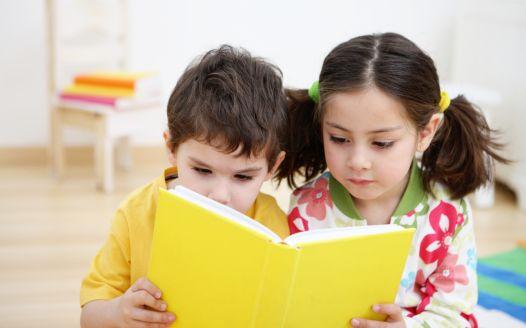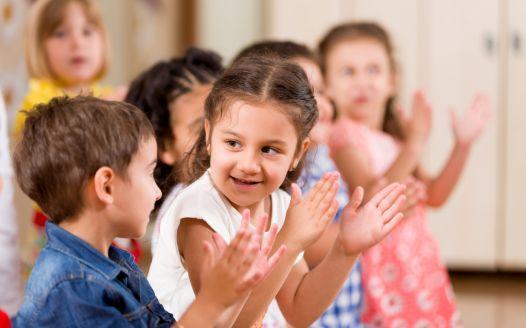![Lucie England]()
Twigsee won us over from the moment we started using it. It allows us to manage everything in our preschool in a convenient and easy-to-view manner, all in one place. You’ll love Twigsee because it will make your administrative tasks easier and will make communication with parents faster and more effective. It will not only make your teachers very happy but also the parents! I also greatly appreciate the wonderful support from the Twigsee team which is always prepared to handle our questions and requests. In short, I can wholeheartedly recommend Twigsee without hesitation.
Lucie England
Director
![Jan Vodrážka]()
While I was a bit skeptical at first, we have been up and running with Twigsee for a month and a half now without a single problem. We have over fifty reviews from parents and every one of them is positive. Furthermore, parents have started to appreciate all that our teachers do for them and they’ve not only decreased their demands, but have started asking how they can help. They donate toys, company gifts, or homemade Moravian honey. We are happy and are ordering Twigsee for our other location in Průhonice.
Jan Vodrážka
Director
![Dominika Hájková]()
Our preschool Malvína has been using the Twigsee app for over half a year. It is a big help to us. Thanks to the child’s profile, we have an easy-to-view list of all their important information. Also, with Twigsee, communication with parents is more convenient. We can share photos with them and using posts, share important information with only selected parents. Not needing to inform each parent individually has saved us a significant amount of work. What we appreciate most about the app, is the easy-to-view attendance. It shows the number of present and excused children and also, alerts us to any children leaving after lunch. Our school highly recommends the app. The team of people who developed the app are definitely professionals in what they do. They responded to all of our questions quickly and are always available to assist us.
Dominika Hájková
Assistant Director
![Mr. Jimmy]()
Hello, so far so good with Twigsee. We have managed to create classes and upload students' names. The teachers' names have been shared already and we believe by next week we might have progressed further. Thanks to all.
Mr. Jimmy
System Manager, Greenwood Groove Academy, Kenya
![Zuzana Vacíková]()
Twigsee caught our attention right away from the presentation thanks to the range of functions offered. It wasn't a system that only dealt with attendance or just the registry. It offered us the opportunity to have everything under one roof. And the cherry on top of the cake was the possibility of sending parents contributions about how their children are doing in preschool that day. Parents liked the app very quickly. At first, teachers were more concerned about whether preschool management wanted to give them extra work. However, they soon discovered that writing to parents made them happy, and they also finally have an overview of the children's attendance for each day. Twigsee can handle all that is on the agenda in a preschool as well as accounting.
Forest preschool, Pohádky z.s., Zvole
Zuzana Vacíková
Assistant Director
![Michelle Specht]()
Great Customer Support! Any problem gets immediate attention, and also the sales representatives are very willing to help.
Michelle Specht
Director
![Helena Zdrubecká]()
We have just started using the Twigsee application, as I was drawn in by an offer. Especially the time saving. I can use my time more meaningfully with my children rather than doing administration. I appreciate the professionalism of the team. Mr. Med answered all of our questions. I was impressed by the enrolment process of new children, attendance and, above all, the connection of teachers with parents, which does not disrupt them from their work with the children. Before signing the contract, we compared the offer of similar applications and came to the conclusion that Twigsee provides the most comprehensive offer of services for preschool needs.
Helena Zdrubecká
Director
![Linda Janichová]()
We have been using the Twigsee app in our Fox Nursery for over a year now. Through the app we communicate important information to parents. We share photos of the children's daily activities, and we use surveys, to which parents respond more quickly than in person. We have an overview of how many children are coming on a given day, so we can plan and adjust the day's schedule. Parents especially like the app because they have instant information about what's going on in the preschool, they can see lots of photos and they can excuse their child for the time they need in a few clicks.
The Twigsee app is responsive to the needs of our preschools and is quick and easy for teachers, nannies and parents to use. With the Twigsee app, we are simply moving with the times.
Linda Janichová
Director
![Zuzana Černá]()
Twigsee is a wonderful app that has made communication between the preschool and parents faster, more convenient, and better since we began using it at the beginning of the school year. Also, it unbelievably simplifies the work of employees. Everybody, including the parents, are happy with the app.
Zuzana Černá
Assistant Director
![Tereza Dvořáková]()
Twigsee is a great and innovative app for me as the preschool’s headmaster as well as a mother. There’s finally an app that eases the workload of administrative duties for the MŠMT (Ministry of Education) as well as the MPSV (Social Security) for everyone. It accomplishes all of this in a very easy to use and intuitive way. Communication with the Twigsee team is superb. They were always happy to answer all of my questions about the app and its functions whenever I needed it. As a mother, I value daily, easy-to-view information about my child so that I am informed about what they are doing and have access to information from the preschool, teachers, and administration. I strongly recommend the app for all administrators and parents!
Tereza Dvořáková
Director
![Michaela Možiešíková]()
We’ve finally disposed of all signature forms for all applications and online photo galleries, and parents no longer forget about school activities. Parents know what is happening at preschool and are much happier and at ease. We’ve stopped needing to constantly explain and repeat the same things. Thank you.
Michaela Možiešíková
Assistant Director
![Lucie England]()
Twigsee won us over from the moment we started using it. It allows us to manage everything in our preschool in a convenient and easy-to-view manner, all in one place. You’ll love Twigsee because it will make your administrative tasks easier and will make communication with parents faster and more effective. It will not only make your teachers very happy but also the parents! I also greatly appreciate the wonderful support from the Twigsee team which is always prepared to handle our questions and requests. In short, I can wholeheartedly recommend Twigsee without hesitation.
Lucie England
Director
![Jan Vodrážka]()
While I was a bit skeptical at first, we have been up and running with Twigsee for a month and a half now without a single problem. We have over fifty reviews from parents and every one of them is positive. Furthermore, parents have started to appreciate all that our teachers do for them and they’ve not only decreased their demands, but have started asking how they can help. They donate toys, company gifts, or homemade Moravian honey. We are happy and are ordering Twigsee for our other location in Průhonice.
Jan Vodrážka
Director
![Dominika Hájková]()
Our preschool Malvína has been using the Twigsee app for over half a year. It is a big help to us. Thanks to the child’s profile, we have an easy-to-view list of all their important information. Also, with Twigsee, communication with parents is more convenient. We can share photos with them and using posts, share important information with only selected parents. Not needing to inform each parent individually has saved us a significant amount of work. What we appreciate most about the app, is the easy-to-view attendance. It shows the number of present and excused children and also, alerts us to any children leaving after lunch. Our school highly recommends the app. The team of people who developed the app are definitely professionals in what they do. They responded to all of our questions quickly and are always available to assist us.
Dominika Hájková
Assistant Director
![Mr. Jimmy]()
Hello, so far so good with Twigsee. We have managed to create classes and upload students' names. The teachers' names have been shared already and we believe by next week we might have progressed further. Thanks to all.
Mr. Jimmy
System Manager, Greenwood Groove Academy, Kenya
![Zuzana Vacíková]()
Twigsee caught our attention right away from the presentation thanks to the range of functions offered. It wasn't a system that only dealt with attendance or just the registry. It offered us the opportunity to have everything under one roof. And the cherry on top of the cake was the possibility of sending parents contributions about how their children are doing in preschool that day. Parents liked the app very quickly. At first, teachers were more concerned about whether preschool management wanted to give them extra work. However, they soon discovered that writing to parents made them happy, and they also finally have an overview of the children's attendance for each day. Twigsee can handle all that is on the agenda in a preschool as well as accounting.
Forest preschool, Pohádky z.s., Zvole
Zuzana Vacíková
Assistant Director
![Michelle Specht]()
Great Customer Support! Any problem gets immediate attention, and also the sales representatives are very willing to help.
Michelle Specht
Director
![Helena Zdrubecká]()
We have just started using the Twigsee application, as I was drawn in by an offer. Especially the time saving. I can use my time more meaningfully with my children rather than doing administration. I appreciate the professionalism of the team. Mr. Med answered all of our questions. I was impressed by the enrolment process of new children, attendance and, above all, the connection of teachers with parents, which does not disrupt them from their work with the children. Before signing the contract, we compared the offer of similar applications and came to the conclusion that Twigsee provides the most comprehensive offer of services for preschool needs.
Helena Zdrubecká
Director
![Linda Janichová]()
We have been using the Twigsee app in our Fox Nursery for over a year now. Through the app we communicate important information to parents. We share photos of the children's daily activities, and we use surveys, to which parents respond more quickly than in person. We have an overview of how many children are coming on a given day, so we can plan and adjust the day's schedule. Parents especially like the app because they have instant information about what's going on in the preschool, they can see lots of photos and they can excuse their child for the time they need in a few clicks.
The Twigsee app is responsive to the needs of our preschools and is quick and easy for teachers, nannies and parents to use. With the Twigsee app, we are simply moving with the times.
Linda Janichová
Director
![Zuzana Černá]()
Twigsee is a wonderful app that has made communication between the preschool and parents faster, more convenient, and better since we began using it at the beginning of the school year. Also, it unbelievably simplifies the work of employees. Everybody, including the parents, are happy with the app.
Zuzana Černá
Assistant Director
![Tereza Dvořáková]()
Twigsee is a great and innovative app for me as the preschool’s headmaster as well as a mother. There’s finally an app that eases the workload of administrative duties for the MŠMT (Ministry of Education) as well as the MPSV (Social Security) for everyone. It accomplishes all of this in a very easy to use and intuitive way. Communication with the Twigsee team is superb. They were always happy to answer all of my questions about the app and its functions whenever I needed it. As a mother, I value daily, easy-to-view information about my child so that I am informed about what they are doing and have access to information from the preschool, teachers, and administration. I strongly recommend the app for all administrators and parents!
Tereza Dvořáková
Director
![Michaela Možiešíková]()
We’ve finally disposed of all signature forms for all applications and online photo galleries, and parents no longer forget about school activities. Parents know what is happening at preschool and are much happier and at ease. We’ve stopped needing to constantly explain and repeat the same things. Thank you.
Michaela Možiešíková
Assistant Director
![Lucie England]()
Twigsee won us over from the moment we started using it. It allows us to manage everything in our preschool in a convenient and easy-to-view manner, all in one place. You’ll love Twigsee because it will make your administrative tasks easier and will make communication with parents faster and more effective. It will not only make your teachers very happy but also the parents! I also greatly appreciate the wonderful support from the Twigsee team which is always prepared to handle our questions and requests. In short, I can wholeheartedly recommend Twigsee without hesitation.
Lucie England
Director
![Jan Vodrážka]()
While I was a bit skeptical at first, we have been up and running with Twigsee for a month and a half now without a single problem. We have over fifty reviews from parents and every one of them is positive. Furthermore, parents have started to appreciate all that our teachers do for them and they’ve not only decreased their demands, but have started asking how they can help. They donate toys, company gifts, or homemade Moravian honey. We are happy and are ordering Twigsee for our other location in Průhonice.
Jan Vodrážka
Director
![Dominika Hájková]()
Our preschool Malvína has been using the Twigsee app for over half a year. It is a big help to us. Thanks to the child’s profile, we have an easy-to-view list of all their important information. Also, with Twigsee, communication with parents is more convenient. We can share photos with them and using posts, share important information with only selected parents. Not needing to inform each parent individually has saved us a significant amount of work. What we appreciate most about the app, is the easy-to-view attendance. It shows the number of present and excused children and also, alerts us to any children leaving after lunch. Our school highly recommends the app. The team of people who developed the app are definitely professionals in what they do. They responded to all of our questions quickly and are always available to assist us.
Dominika Hájková
Assistant Director















